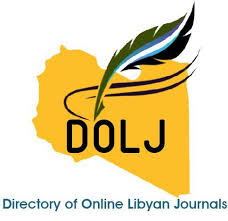EVALUATION OF ALVARADO SCORE IN DIAGNOSIS OF ACUTE APPENDICITIS
DOI:
https://doi.org/10.54361/Ljmr18-1.17Keywords:
Alvarado score, acute appendicitis, sensitivity, specificity, Positive predictive valueAbstract
Background: Abdominal pain is frequently caused by acute appendicitis, which can be diagnosed early and result in a lower morbidity and death rate. Improved diagnostic procedures should minimize the progression to complicated appendicitis as well as reduce the number of unwanted surgical interventions. However, even with the advancements in diagnostic laboratory tests and contemporary radiographic imaging, appendicitis diagnosis is still primarily clinical. Different scoring methods were developed to reduce the negative appendectomy rate and raise the positive diagnosis rate of appendicitis such as Alvarado score. The present study aimed to evaluate the sensitivity and specificity of the Alvarado score as a method for the diagnosis of acute appendicitis. Methods: A total of 146 operated cases of appendectomy in Zawia Medical Center, Libya were studied. All patients presented during a period from July 2018 to July 2019 with symptoms and signs of acute appendicitis, and after that, they were operated on by the conventional method of open appendectomy. The relevant data was collected and analyzed, and the efficiency of the Alvarado scoring system was assessed by calculating sensitivity, positive predictive value, and negative appendectomy rate. Results: In this study, 100% of patients reported pain as their primary presenting symptom; presentations occurred between one and seven days, with a mean of two days; 100% of patients had surgery; and the overall negative appendectomy rate in Alvarado ≥7 was 5% and 72.5% was the positive predictive value (PPV).Conclusion: Our findings suggest that the Alvarado score has a very high positive predictive value, i.e., diagnostic accuracy. Also, with the help of the Alvarado score, we can reduce the number of negative appendectomies. Besides that, this scoring system is an easy, simple, cheap, reliable, safe, and fast tool in the preoperative diagnosis of acute appendicitis and can work effectively in routine practice.
Downloads
References
- D'Souza N, Nugent K. Appendicitis. Am Fam Physician. 2016;93(2):142–143,
- Jones MW, Lopez RA, Deppen JG. Appendicitis. StatPearls. ed. Treasure Island: StatPearls Publishing; 2020.
- BHATNAGAR S.: Evaluation of Alvarado score in the diagnosis of acute appendicitis. Journal of Science and Clinical Research (IGM Publication) 5 (2017): 30404-7, 2018.
- OHLE R., O'REILLY F., O'BRIEN K.K., FAHEY T. and DIMITROV B.D.: The Alvarado score for predicting acute appendicitis: A systematic review. BMC Medicine, 9 (1): 139, 2011.
- D'Souza N, Nugent K. Appendicitis. Am Fam Physician. 2016;93(2):142–143
- JADHAV A., POTDAR A. and KALYANSHETTI A.: Prospective Study of Laparotomy Wound Infections and Associated Risk Factors and Profile of Causative Micro-organisms, 2016.
- Díaz-Barrientos C. Z., Aquino-González A., Heredia-Montaño M., Navarro-Tovar F., Pineda-Espinosa M. A., Espinosa de Santillana I. A. The RIPASA score for the diagnosis of acute appendicitis: a comparison with the modified alvarado score. Revista de Gastroenterología de México . 2018;83(2):112–116. doi: 10.1016/j.rgmxen.2018.03.006.
- ALBAYRAK Y., ALBAYRAK A., ALBAYRAK F., YILDIRIM R., AYLU B., UYANIK A., KABALAR E. and GÜZEL I.C.: Mean platelet volume: A new predictor in confirming acute appendicitis diagnosis. Clinical and Applied Thrombosis/Hemostasis, 17 (4): 362-6, 2011.
- Alvarado A. A practical score for the early diagnosis of acute appendicitis. Annals of Emergency Medicine. 1986;15(5):557–564. doi: 10.1016/s0196-0644(86)80993-3.
- Karaman K., Ercan M., Demir H., et al. The karaman score: a new diagnostic score for acute appendicitis. Ulusal Travma ve Acil Cerrahi Dergisi. 2018;24(6):545–551. doi: 10.5505/tjtes.2018.62436.
- Karami M. Y., Niakan H., Zadebagheri N., Mardani P., Shayan Z., Deilami I. Which one is better? Comparison of the acute inflammatory response, raja isteri pengiran anak saleha appendicitis and alvarado scoring systems. Annals of Coloproctology . 2017;33(6):227–231. doi: 10.3393/ac.2017.33.6.227.
- Alvarado A. Current Issues in the Diagnostics and Treatment of Acute Appendicitis . London, UK: Intech Open; 2018. Diagnostic scores in acute appendicitis
- Alvarado A. A practical score for the early diagnosis of acute appendicitis Ann Emerg Med 1986: 15 :557-65
- Al-Hashemy AM, Seleem MI. Appraisal of the modified Alvarado Score for acute appendicits in adults. Saudi medical journal. 2004;25(9):1229-1231.
- Ohmann C, Yang Q, Franke C. Diagnostic scores for acute appendicitis: abdominal pain study group. Eur J Surg. 1995; 161(4): 273-281.
- Al-Hashemy AM, Seleem MI. Appraisal of the modified Alvarado Score for acute appendicits in adults. Saudi medical journal. 2004;25(9):1229-1231.
- Lone NA, Shah M, Wani KA, Peer GQ. Modified Alvarado score in diagnosis of acute appendicitis. Ind J Pract Dr. 2006;3:1-4.
- Jan HI, Khan J. Evaluation of modified Alvarado score in the diagnosis of acute appendicitis. Pak J Surg. 2007; 23(4):248-50.
- Fenyö G. Routine use of a scoring system for decision-making in suspected acute appendicitis in adults. Acta Chir Scand. 1987; 153(9): 545-551.
- khan I. Rehman, A U . application of Alvarado score to diagnosis of acute appendicitis J Ayub Med coll Abbotabad 2005 ,17;41=44.
- malik KA , Khan A, wheed I , Evaluation of the Alvarado score in diagnosis of acute Appendicitis .J coll physicians surg pak 2000 ,10 392-4
Downloads
Published
Issue
Section
License
Copyright (c) 2024 Sumia H Dra (Author)

This work is licensed under a Creative Commons Attribution-NonCommercial-NoDerivatives 4.0 International License.
Open Access Policy
Libyan journal of medical Research (LJMR).is an open journal, therefore there are no fees required for downloading any publication from the journal website by authors, readers, and institution.
The journal applies the license of CC BY (a Creative Commons Attribution 4.0 International license). This license allows authors to keep ownership f the copyright of their papers. But this license permits any user to download , print out, extract, reuse, archive, and distribute the article, so long as appropriate credit is given to the authors and the source of the work.
The license ensures that the article will be available as widely as possible and that the article can be included in any scientific archive.
Editorial Policy
The publication of an article in a peer reviewed journal is an essential model for Libyan journal of medical Research (LJMR). It is necessary to agree upon standards of expected ethical behavior for all parties involved in the act of publishing: the author, the journal editorial, the peer reviewer and the publisher.
Any manuscript or substantial parts of it, submitted to the journal must not be under consideration by any other journal. In general, the manuscript should not have already been published in any journal or other citable form, although it may have been deposited on a preprint server. Authors are required to ensure that no material submitted as part of a manuscript infringes existing copyrights, or the rights of a third party.
Authorship Policy
The manuscript authorship should be limited to those who have made a significant contribution and intellectual input to the research submitted to the journal, including design, performance, interpretation of the reported study, and writing the manuscript. All those who have made significant contributions should be listed as co-authors.
Others who have participated in certain substantive aspects of the manuscript but without intellectual input should only be recognized in the acknowledgements section of the manuscript. Also, one of the authors should be selected as the corresponding author to communicate with the journal and approve the final version of the manuscript for publication in the LJMR.
Peer-review Policy
- All the manuscripts submitted to LJMR will be subjected to the double-blinded peer-review process;
- The manuscript will be reviewed by two suitable experts in the respective subject area.
- Reports of all the reviewers will be considered while deciding on acceptance/revision or rejection of a manuscript.
- Editor-In-Chief will make the final decision, based on the reviewer’s comments.
- Editor-In-Chief can ask one or more advisory board members for their suggestions upon a manuscript, before making the final decision.
- Associate editor and review editors provide administrative support to maintain the integrity of the peer-review process.
- In case, authors challenge the editor’s negative decision with suitable arguments, the manuscript can be sent to one more reviewer and the final decision will be made based upon his recommendations.











 https://portal.issn.org/resource/ISSN/2413-6069
https://portal.issn.org/resource/ISSN/2413-6069


